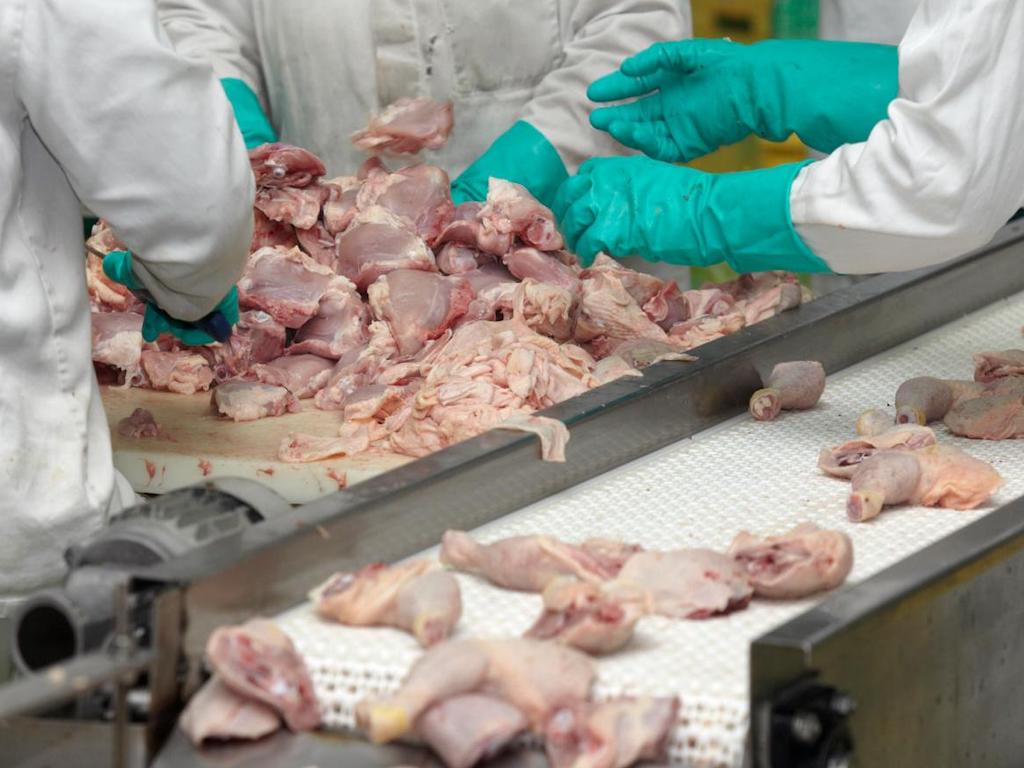3 Mins Read
Meat plants all over the world are struggling to contain coronavirus outbreaks amongst its employees, shedding light on the nature of the work itself and the wider livestock industry that is fuelling the spread of disease. Critics are warning that pressure to continue operating at such speed to meet the demand for animal protein is coming at the cost of human lives and is pushing the food supply chain to its limits. The chaos is making it clear that the current food system must change to one that is safer, healthier and more sustainable.
Outbreaks of Covid-19 are occurring in slaughterhouses in multiple countries around the world, from the Americas to Europe and Oceania. Experts are now saying that beyond the immediate meat supply shock and supermarket shortages, this will have long-term implications for our current food supply chain, and signals the need to urgently shift to a more sustainable and crisis-resilient system.
The United States has faced the worst outbreaks in its meat facilities, with over 180 meat and food processing plants now recording coronavirus cases, prompting closures that will push the meat supply chain to its “breaking” point, warned Tyson Foods chairman John Tyson in late April. The latest official figures say there have been nearly 5,000 cases and at least 20 deaths among meat facility workers, while the Midwest Center for Investigative Reporting have reported that the real figure is likely to be over 10,000 infected cases.
Forced closures have meant that farmers are now having to euthanise and dispose of millions of animals, with at least two million chickens killed in US cities Delaware and Maryland in April alone – piling on food waste while grocery shelves remain empty. Workers in facilities where infections have yet to be reported, however, are still being pressured to go to work – in one case, Tyson poultry workers have been offered a US$500 bonus to continue working in dangerous conditions.
Other countries with even more consolidated meat supply chains are also battling outbreaks, including in Ireland, Australia, Germany, Spain, Brazil, Canada and the United Kingdom. In Germany, there have been over 300 confirmed cases of Covid-19 in a single meat processing plant in Birkenfeld. Meanwhile, 949 cases were reported in an Alberta meat packing house in Canada and an estimated 70 cases confirmed at Melbourne’s Cedar Meats.
The reasons behind the outbreaks in meat plants all over the world are said to be related to overcrowded working conditions, workforces made up primarily of migrant workers or marginalised communities living in communal or cramped housing, and that many factories have remained open until infections are detected.
“Covid-19 reveals the costs to workers crowded together under already dangerous working conditions in jobs that often lacked sick leave and healthcare benefits. These are all problems dating from the early 1980s when the shareholder value movement forced corporations to have profit as their sole goal,” Marion Nestle, professor of nutrition, food studies and global health at New York University told the Guardian, referring to the dominance of big meat companies in the industry who employ low-wage workers to cut costs and keep the revenue running despite the risks.
Experts say that in the short-term, the issue is causing disruption and instability in the supply chain. However, they warn that in the long-term, the questions about the lack of resilience and danger of the meat-centric and unsustainable food system will persist.
Aside from the unethical human conditions that have been exposed by the pandemic, as well as the consequent food waste due to forced animal culling, the animal agriculture industry itself is a major driver of ecological degradation. The United Nations estimates that animal agriculture is responsible for 18% of global greenhouse gas emissions, huge amounts of water contamination and rampant deliberate deforestation leading to mass biodiversity loss.
In April, the world’s top biodiversity experts warned that far worse and deadlier pandemics are to come if we do not change our system now, and cited animal livestock as one of the crucial root causes of disease outbreaks. The current food chain must undergo dramatic changes if we are to not only protect lives, but to bring about a more crisis-resilient system that is healthier and safer for all humans, animals and our planet.
Lead image courtesy of Getty Images.




